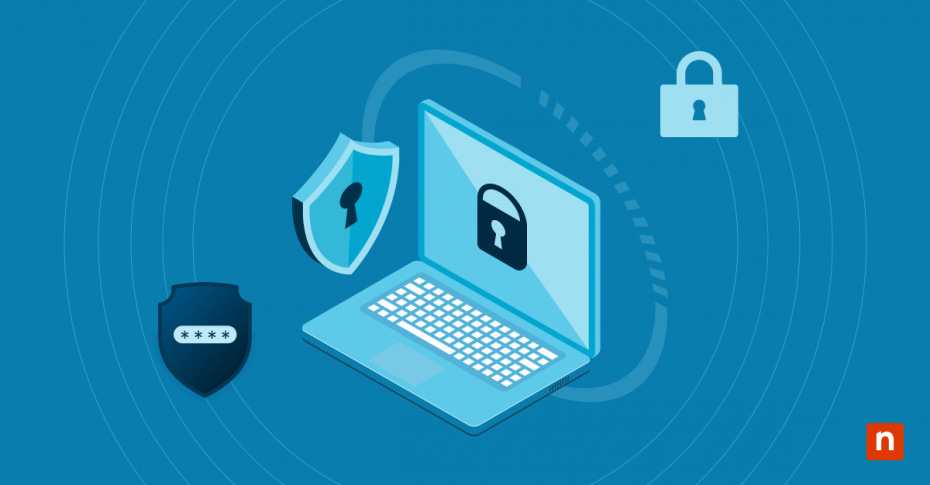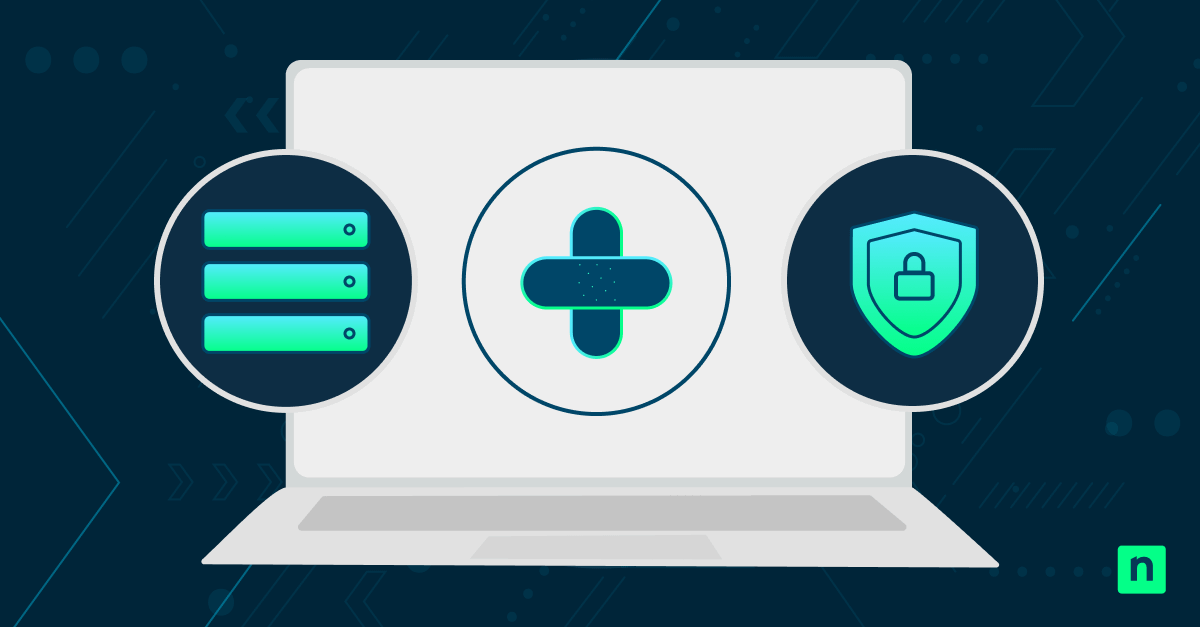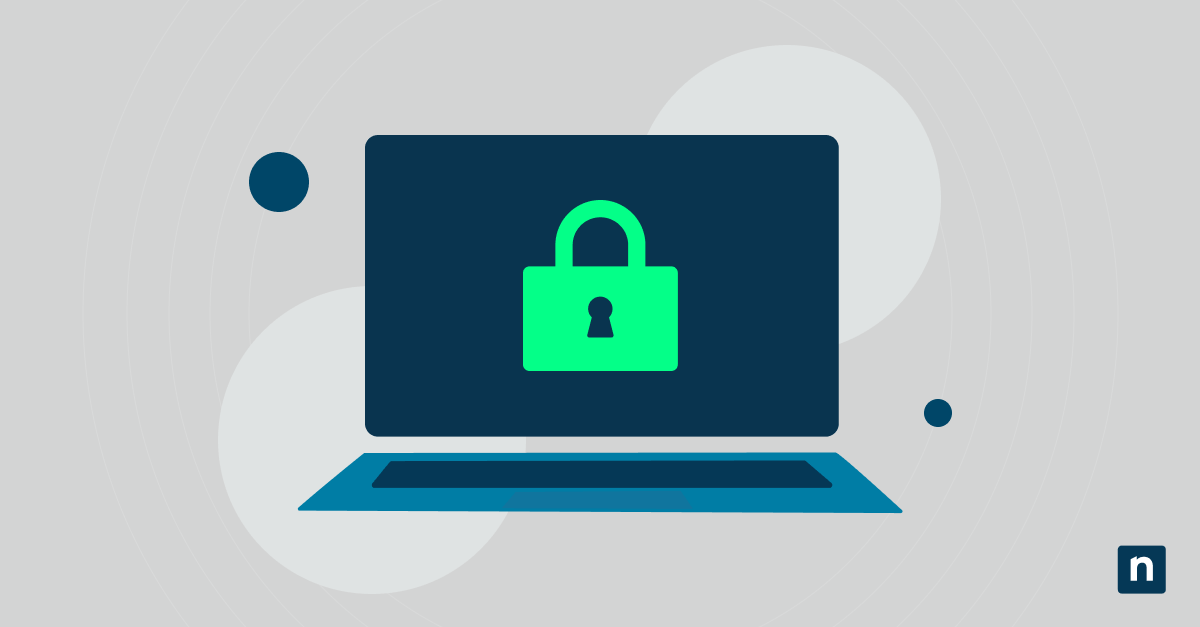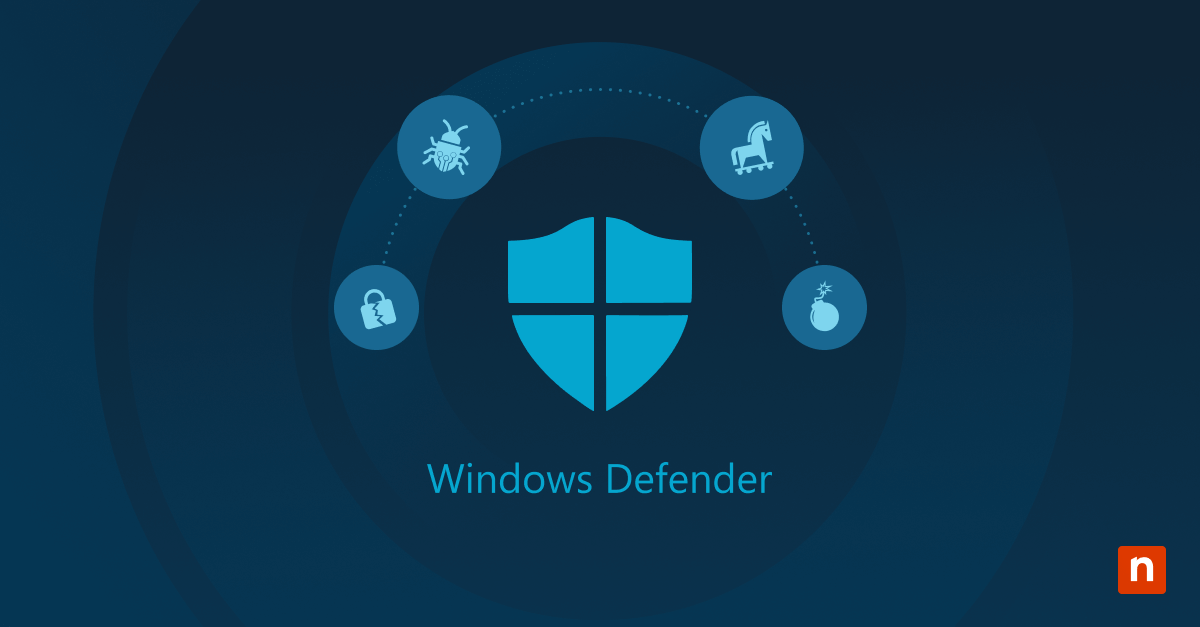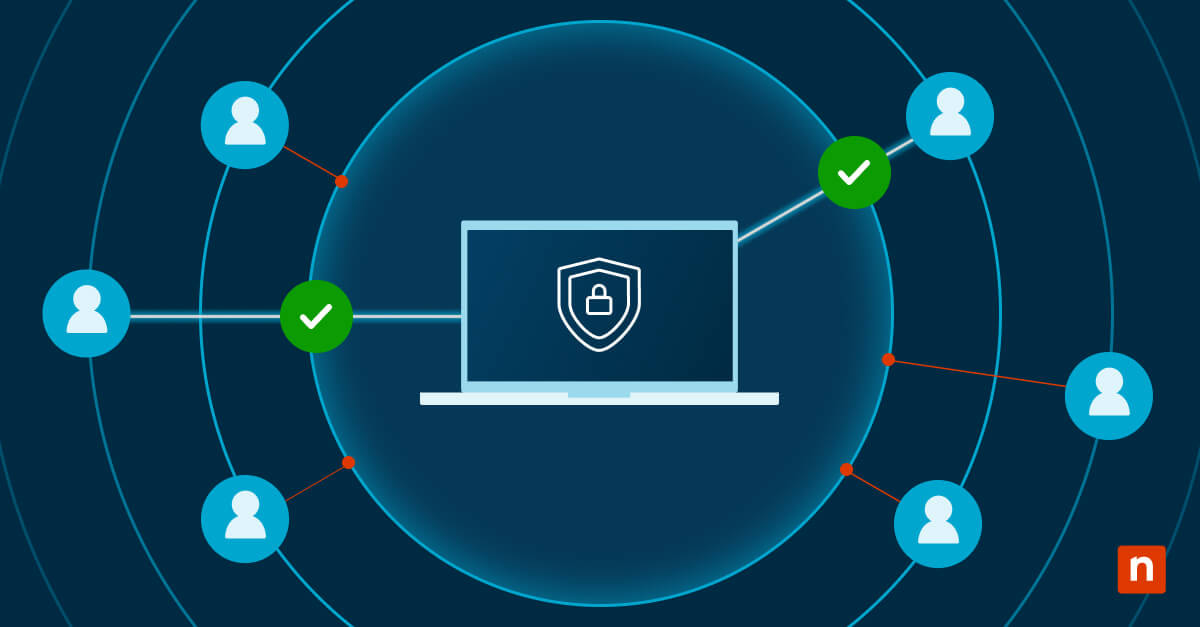Most businesses are aware that protecting sensitive data and maintaining robust cybersecurity measures is more critical than ever. Managed Security Service Providers (MSSPs) offer specialized services to help businesses safeguard their networks from cyber threats.
By outsourcing security management to an MSSP, companies can benefit from expert monitoring, threat detection, and rapid incident response, ensuring their data remains secure. This article explores what an MSSP is, the advantages of using one, and how it can bolster your organization’s cybersecurity defenses.
What are MSSPs and how do they differ from MSPs?
A Managed Security Service Provider (MSSP) is a third-party company that provides comprehensive IT security management to protect businesses from various digital threats. MSSPs offer services such as continuous monitoring, threat detection, incident response, vulnerability management, and compliance support.
In comparison, a Managed Service Provider (MSP) offers a broader range of IT services, including network management, data backup, cloud services, and IT support, but without a primary focus on security.
While MSPs handle general IT needs to ensure the efficient functioning of an organization’s IT infrastructure, MSSPs specialize in the security aspect, providing dedicated expertise and resources to combat cyber threats. This specialization makes MSSPs particularly crucial for businesses that require advanced security measures beyond the capabilities of standard MSPs. The importance of cybersecurity can’t be overstated these days, and the increasing frequency and sophistication of cyberattacks means that no business can afford to ignore this issue..
The role and services of MSSPs
An MSSP acts as an extension of the business’s internal IT team, focusing specifically on protecting the organization from cyber threats. This partnership allows the business to leverage the MSSP’s specialized knowledge and technology, ensuring comprehensive and proactive security management.
Typically, the services offered by an MSSP include:
Continuous monitoring: 24/7 surveillance of the business’s network and systems to detect and respond to potential security threats in real time.
Threat detection and response: Identifying and mitigating cyber threats through advanced detection technologies and incident response protocols.
Vulnerability management: Regularly scanning and assessing the business’s network and systems for vulnerabilities and providing recommendations for remediation.
Firewall and Intrusion Detection System (IDS) management: Configuring, managing, and monitoring firewalls and IDS to prevent unauthorized access and detect malicious activities.
Security Information and Event Management (SIEM): Collecting, analyzing, and correlating security data from various sources to provide comprehensive insights into potential security incidents.
Endpoint protection: Implementing and managing security measures on end-user devices such as laptops, desktops, and mobile devices to prevent malware and other threats.
Compliance management: Assisting businesses in meeting industry-specific regulatory requirements and standards, such as GDPR, HIPAA, and PCI-DSS.
Security awareness training: Providing education and training programs to employees to enhance their understanding of cybersecurity best practices and reduce the risk of human error.
Incident response services and planning: Developing and testing incident response plans to ensure the business is prepared to handle security incidents effectively.
Managed Detection and Response (MDR): Combining advanced threat detection capabilities with human expertise to provide rapid and effective responses to security incidents.
Benefits of using an MSSP
Using a Managed Security Service Provider (MSSP) offers several significant benefits for businesses looking to improve their cybersecurity posture. Here are some of the key advantages:
Expertise and specialization
MSSPs bring specialized knowledge and expertise in cybersecurity, leveraging their experience to provide advanced threat detection, prevention, and response capabilities. This specialization helps businesses stay ahead of evolving cyber threats.
Cost-effectiveness
Outsourcing security functions to a managed security service provider can be more cost-effective than building an in-house security team. MSSPs offer access to state-of-the-art security tools and technologies without the need for significant capital investment.
24/7 monitoring and support
MSSPs provide round-the-clock network security monitoring, ensuring that potential threats are detected and addressed promptly, regardless of when they occur. This continuous vigilance helps prevent security incidents from escalating.
Proactive threat detection and response
MSSPs use advanced security technologies, such as Security Information and Event Management (SIEM) systems, to identify and respond to threats proactively. This proactive approach minimizes the impact of security incidents.
Scalability
MSSPs can scale their services to meet the changing needs of a business. Whether a company is growing, adding new locations, or expanding its digital footprint, an MSSP can adjust its security services accordingly.
Regulatory compliance
Outsourced IT security providers help businesses comply with industry-specific regulations and standards. They provide the necessary tools, processes, and expertise to ensure compliance, reducing the risk of legal and financial penalties.
Access to advanced technology
MSSPs invest in cutting-edge security technologies and tools, providing their clients with access to the latest innovations in cybersecurity. This access enhances the overall security posture of the business.
Focus on core business activities
By outsourcing security functions to an MSSP, businesses can focus on their core operations and strategic initiatives without being distracted by complex security challenges.
Improved incident response
MSSPs have established incident response protocols and experienced teams to handle security incidents effectively. This capability ensures that businesses can quickly contain and mitigate the impact of security breaches.
Employee training
MSSPs often provide security awareness training for employees, helping to build a security-conscious culture within the organization. This training reduces the risk of human error, which is a common cause of security breaches.
Enhanced data protection
MSSPs implement comprehensive security measures to protect sensitive data, including encryption, data loss prevention, and secure access controls. These measures help safeguard critical information from unauthorized access and breaches.
Risk management
MSSPs conduct regular risk assessments and vulnerability scans to identify and address potential security weaknesses. This proactive risk management approach helps businesses stay resilient against emerging threats.
Types of managed security service providers
MSSPs can be categorized based on the range and type of services they offer. Here are the primary types of managed security service providers:
Pure-Play MSSPs
These MSSPs focus exclusively on cybersecurity services. They offer threat detection, incident response, vulnerability management, SIEM, firewall management, endpoint protection, compliance support, and more.
Full-Service MSSPs
These providers offer a comprehensive suite of IT services, including cybersecurity, but also cover broader IT management needs. In addition to cybersecurity services, they provide network management, data backup and recovery, cloud services, and general IT support.
Niche or specialized MSSPs
These MSSPs focus on specific areas or industries, offering tailored security solutions.
They typically offer industry-specific compliance, targeted threat detection and response, specialized security technologies (e.g., for IoT or industrial control systems).
Cloud-based MSSPs
With a focus on securing cloud environments, these providers offer cloud security monitoring, cloud access security broker (CASB) services, cloud vulnerability management, and compliance support for cloud-based regulations.
Hybrid MSSPs
These MSSP companies offer both on-premises and cloud-based security solutions, including integrated security that covers both traditional IT infrastructure and cloud environments, resulting in seamless protection across all platforms.
Comparing MSSP types
Different types of MSSPs can be more or less suitable depending on a business’s specific needs and circumstances.
Pure-play MSSPs are ideal for businesses with a strong internal IT team that requires specialized cybersecurity expertise. These companies benefit from focused and advanced security measures without needing additional IT management services. The primary advantage of pure-play MSSPs lies in their deep cybersecurity expertise, which enables advanced threat detection and specialized security solutions. However, the lack of broader IT management services may necessitate additional providers for other IT needs.
Full-service MSSPs, on the other hand, are perfect for small to medium-sized businesses that need comprehensive IT and security management from a single provider. These organizations can streamline their IT operations and security under one roof, making full-service MSSPs a cost-effective and simplified management solution. While they offer a broad range of services, they might not provide the same depth of cybersecurity expertise as pure-play MSSPs.
Niche or specialized MSSPs cater to businesses in highly regulated industries, such as healthcare or finance, or those with specific security requirements like IoT security. These MSSPs provide tailored solutions that meet industry-specific regulations and security challenges. The drawback is that their limited scope of services may require businesses to engage additional providers for broader IT or security needs.
Cloud-based MSSPs are best suited for businesses with significant cloud infrastructure or those transitioning to cloud-based operations. Companies looking to secure their cloud environments will benefit from the expertise in cloud security, advanced cloud monitoring, and compliance with cloud-specific regulations provided by these MSSPs. However, they may not cover on-premises security needs comprehensively.
Hybrid MSSPs are ideal for organizations with a mix of on-premises and cloud infrastructure, offering integrated security solutions across diverse environments. These businesses enjoy comprehensive coverage for both on-premises and cloud environments, ensuring seamless integration and flexibility. Nonetheless, managing hybrid MSSPs can be more complex and potentially involve higher costs compared to specialized providers.
How to choose the right MSSP
- Assess your business’ needs: Determine the specific security challenges and requirements of your business. Consider factors such as industry regulations, IT infrastructure, and existing security capabilities.
- Evaluate expertise: Look for MSSPs with the expertise that matches your security needs. Pure-play MSSPs are ideal for advanced security, while full-service MSSPs offer broader IT support.
- Consider flexibility: Choose an MSSP that can scale and adapt to your business growth and evolving security landscape.
- Service Level Agreements (SLAs) and customer support: It’s wise to choose an MSSP that sets expectations with an SLA document, as well as one that offers easy-to-reach, helpful customer support.
- Check references and reviews: Research potential MSSPs, review their case studies, and seek feedback from current clients to ensure they have a strong track record.
- Costs and pricing models: Ensure the pricing model fits your business’ needs and will scale easily as your circumstances change.
By carefully evaluating these factors, businesses can select the type of MSSP that best aligns with their specific security needs and operational goals.
Challenges and considerations
Using a Managed Security Service Provider offers many benefits, but it also comes with a few caveats that businesses need to address to ensure a successful partnership. Here are some key challenges and considerations:
Be aware of challenges
- Integration with existing systems: Integrating an MSSP’s services with a business’s existing IT infrastructure can be complex. Compatibility issues and the need for seamless integration with current systems and processes require careful planning and execution.
- Data privacy and control: Entrusting sensitive data to an external provider raises concerns about data privacy and control. Businesses must ensure that the MSSP has robust data protection measures and complies with relevant privacy regulations.
- Communication and coordination: Effective communication and coordination between the business and the MSSP are crucial. Misunderstandings or delays in communication can hinder the MSSP’s ability to respond promptly to security incidents.
- Vendor lock-in: Relying heavily on a single MSSP may lead to vendor lock-in, where switching providers becomes difficult and costly. Businesses need to consider the long-term implications and ensure they have the flexibility to change providers if needed.
- Cost management: While MSSPs can be cost-effective, the pricing models can be complex. Unexpected costs may arise if the scope of services changes or if additional services are required. Businesses need to have a clear understanding of the cost structure and budget accordingly.
- Service Level Agreements (SLAs): Ensuring that the MSSP meets agreed-upon service levels is critical. Businesses must carefully review and negotiate SLAs to include clear metrics, response times, and penalties for non-compliance.
- Dependence on third-party expertise: Over-reliance on an MSSP may lead to a lack of in-house security expertise. It’s important for businesses to maintain a certain level of internal knowledge and capabilities to manage and oversee the MSSP’s performance.
Considerations for ensuring success
- Choosing the right MSSP: Selecting an MSSP that aligns with the business’s specific security needs, industry requirements, and operational goals is essential. Evaluating the MSSP’s expertise, reputation, and track record is a critical step in this process.
- Comprehensive security coverage: Businesses should ensure that the MSSP offers comprehensive security coverage, addressing all potential vulnerabilities and threats. This includes continuous monitoring, incident response, and compliance support.
- Customization and flexibility: An effective MSSP should offer customizable services tailored to the unique needs of the business. Flexibility in scaling services up or down as the business grows or as threats evolve is also important.
- Transparency and reporting: Regular and transparent reporting from the MSSP helps businesses stay informed about their security posture. Detailed reports on security incidents, actions taken, and ongoing risks are crucial for maintaining oversight.
- Regular reviews and audits: Conducting regular reviews and audits of the MSSP’s performance ensures that the partnership remains effective. This includes evaluating the MSSP’s adherence to SLAs, the effectiveness of their security measures, and their responsiveness to incidents.
- Employee training and awareness: While MSSPs handle many security functions, businesses should also invest in training and awareness programs for their employees. This reduces the risk of human error and complements the technical measures implemented by the MSSP.
- Regulatory compliance: Ensuring that the MSSP complies with all relevant regulations and industry standards is vital. Businesses should verify that the MSSP has the necessary certifications and follows best practices for data protection and security.
MSSP case studies and examples
Case study: Financial services firm
Bank of New Zealand (BNZ)
BNZ faced sophisticated cyber threats targeting financial institutions, requiring a comprehensive security strategy to protect sensitive customer data and comply with stringent financial regulations.
BNZ partnered with IBM Security to implement a robust cybersecurity framework. IBM Security provided continuous monitoring, advanced threat detection, and incident response capabilities. They also supported BNZ in meeting regulatory compliance requirements.
The outcome of this partnership? BNZ benefited from enhanced threat detection and response, significantly reducing the risk of data breaches. The partnership ensured compliance with financial regulations, safeguarding customer trust and minimizing potential fines.
Case study: Healthcare provider
Nebraska Medicine
Nebraska Medicine needed to secure sensitive patient data and comply with HIPAA regulations. They experienced frequent targeted cyber threats, including ransomware attacks.
The healthcare provider collaborated with an MSSP, Sirius Computer Solutions, to bolster their cybersecurity defenses. Sirius provided endpoint protection, SIEM solutions, continuous network monitoring, and regular vulnerability assessments.
The MSSP’s proactive measures significantly reduced the number of successful attacks on Nebraska Medicine. They achieved full HIPAA compliance, enhanced data protection measures, and improved overall security practices through employee training and awareness programs.
Case study: E-commerce business
Etsy
Etsy, a popular online marketplace, faced constant threats from cybercriminals attempting to steal customer data and disrupt operations. They needed robust security measures to protect their platform.
Etsy partnered with Cloudflare to enhance their cybersecurity posture. Cloudflare implemented comprehensive security solutions, including web application firewalls, DDoS protection, and real-time threat intelligence.
As a result, data breaches and downtime from DDoS attacks were essentially eliminated. Etsy saw improved customer trust and satisfaction due to enhanced platform security. The partnership allowed Etsy to focus on business growth without worrying about security issues.
In conclusion
As you’ve seen, Managed Security Service Providers (MSSPs) play a vital role in enhancing the cybersecurity posture of businesses across various industries. By offering specialized services such as continuous monitoring, threat detection, and compliance support, MSSPs help organizations protect their sensitive data and maintain operational integrity. As cyber threats continue to evolve, partnering with an MSSP remains a sound strategic move for businesses seeking robust and comprehensive security solutions.

